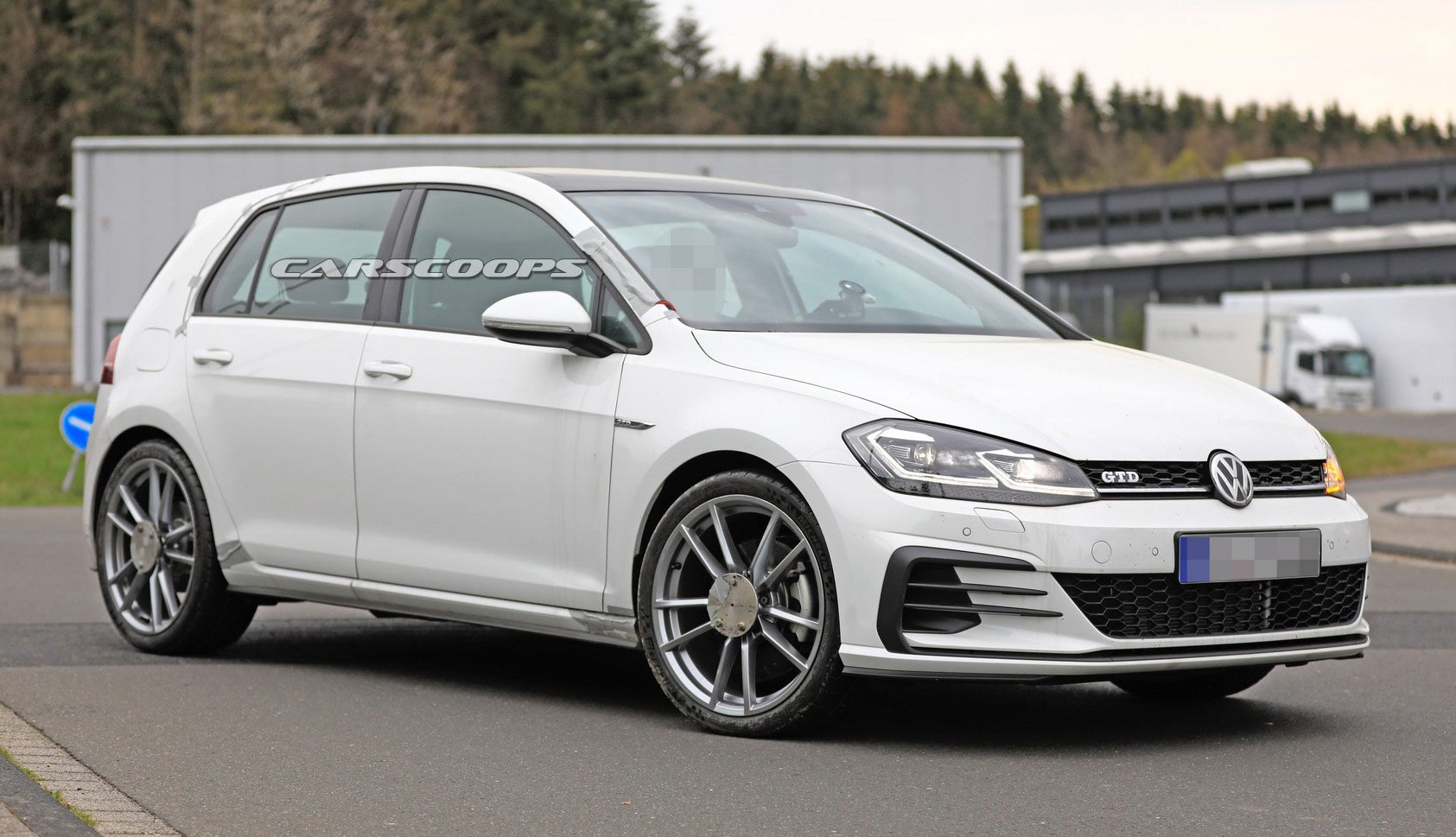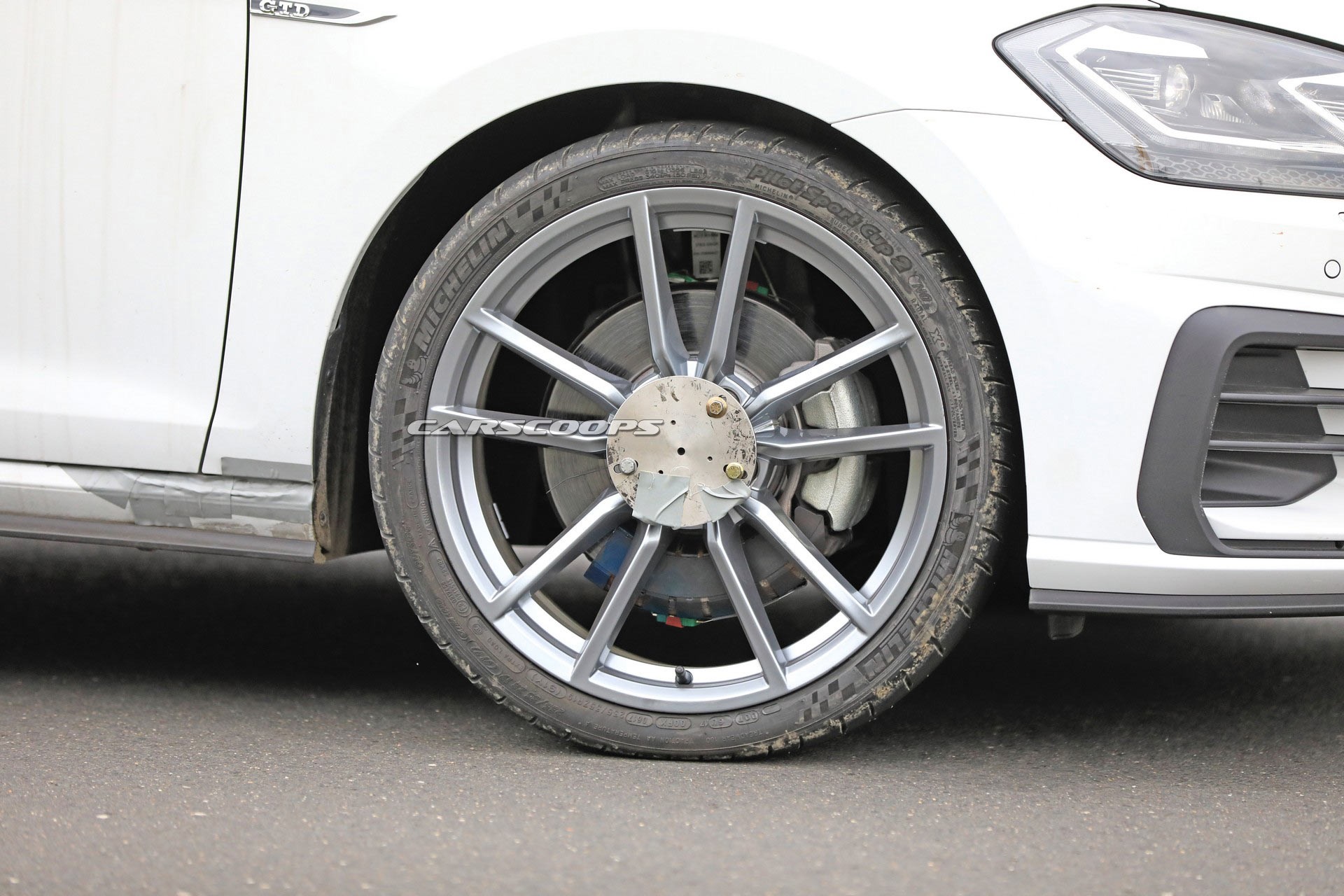By: Tycho de Feijter for 6th Gear Automotive Solutions.
Haarlem, April 2019

Image: Carscoops.
Brake dust particles are a little-known large pollutant. Brake dust is created under braking, when the brake caliper contacts with the brake disc. In Germany alone, 10.000 ton of brake dust ends up in the air every year. The particles can theoretically cause heart disease and respiratory illnesses. Car makers and part makers have been trying to reduce brake dust particles for many years.
German supplier Bosh has developed a brake disc with an ultra-hard tungsten-carbide coating, which reduces the amount of brake dust under braking with 90%, according to the company. And in 2017 German supplier Mann + Hummel announced a brake dust particulate filter, designed to “grab” the brake dust before it is released in the air.
Design of this system was recently finalized, and Volkswagen has been seen testing it on a Golf prototype. The brake dust filter is fitted directly below the brake caliper, at the exact location where most of the brake dust appears. The filter can be adjusted depending on vehicle, and even on intended-use. A small delivery van operating inside a city brakes more often than a car commuting between cities on a highway. The filter catches the dust before it has the chance to become a pollutant. Mann + Hummel claims the filter reduces dust particles with 80%.

Image: Carscoops.
Besides public health concerns, reducing brake dust is interesting for car makers, and especially for Volkswagen, for other reason: the strict Euro 6 emissions standards, which are very hard on diesel, and Volkswagen still makes more diesel-powered cars than anybody else. Volkswagen and Mann + Hummel bet on new Euro 6 test procedure that the European Union is currently developing.
These new tests will look at the entire emissions of the car, not just those from the engine. This in turn, may allow car makers to offset pollutant emissions from the engine with by retaining brake dust with a brake dust filter. This means that if a Volkswagen diesel engine doesn’t fully pass the test, the car still gets the green light, because the dust-reduction offsets the engine-emissions.
When the tests are successful, Volkswagen will start equipping production cars with brake dust filters in 2021.